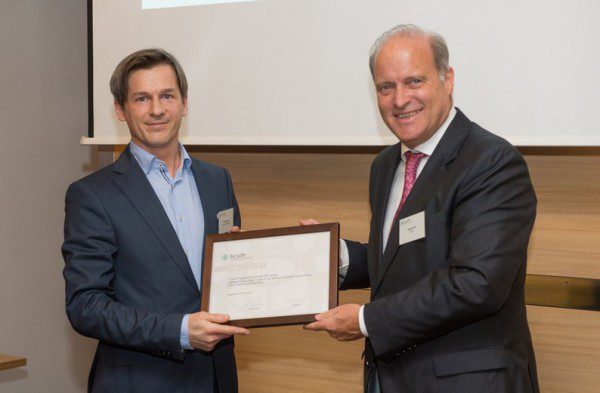Coca-Cola HBC AG (Coca-Cola HBC or the Company), the world’s second largest bottler of products of The Coca-Cola Company in terms of volume, published its 2014 Integrated Annual Report ‘It’s Good to Share on 20th March 2015.
This is the Company’s third integrated report and the first time it is reporting on all aspects of business, governance and sustainability performance in a single report, celebrating the relationships and partnerships that are key to its success.
Dimitris Lois, Chief Executive Officer, said: “We know that our success is closely linked to the vibrancy and wellbeing of our consumers and the communities we serve. For more than ten years, we have continuously refined our approach to managing our business responsibly and sustainably, ensuring that we earn trust by creating value for all our stakeholders. This value is increasingly shaped by factors beyond financial performance, such as environmental and social responsibility, reputation in the communities we serve, stakeholder engagement and investment into the development of our people – all of which contribute to the resilience of our business.”
Coca-Cola HBC endeavours to deliver value through outputs achieved with the highest level of quality, efficiency and care. In 2014, these included:
- 2 billion unit cases of beverages sold
- 589 million consumers served
- 2.1 million customers in 28 countries
- 36,362 direct employees, over 600.000 people employed in the entire value chain
- €8.7 million invested in community programmes
- 31,296 volunteer hours invested to further social and environmental initiatives
- Water footprint reduced to 18.4 billion litres
- Carbon footprint reduced to 718,766 tonnes
- Packaging recovery 73%
- Recycled waste from operations 91%
In 2014, the Company’s sustainability initiatives focused on three key areas: promoting health and wellness, minimising environmental impact and benefitting local communities. Highlights in these areas include:
Health and wellness
- 1.6 million active participants in sports and fitness programmes
- Low or no calorie soft drinks options available in all markets as of 2015
- Voluntary front of pack calorie information on packages
Minimising environmental impact
- Reducing total absolute carbon emissions by 7.8 % compared to 2013
- Investing €5.8 million in water saving projects in more than 20 countries, saving more than 1.1 million cubic metres of water
- Eight production plants awarded European Water Stewardship Gold certification
- €4.3 million investment in energy saving programmes, reducing energy consumption by 300 million mega joules
Benefitting local communities
- Investing €8.7 million (2.5% of pre-tax profit) in community partnerships and initiatives that address environmental and social issues
- Investing €2.4 million in supporting the education of young people to increase chances of employment, and empowering women to become entrepreneurs
- Supporting communities in need by investing over 30.000 volunteer hours combined with financial and in-kind donations at times of natural disasters
Coca-Cola HBC became the global industry leader amongst beverage companies in the Dow Jones World and Europe Sustainability Indices in 2014 and has been listed on the FTSE4Good index since the index was established in 2001. The Company was also awarded an A rating by the Carbon Disclosure Project (CDP) and a place in its Global Climate Performance Leadership Index.
‘It’s Good to Share – Building Trust, Spreading Happiness’ follows the International Integrated Reporting Council (IIRC) framework and is in accordance with the Global Reporting Initiative GRI 3.1. It fulfils Coca-Cola HBC’s commitment to communicate progress on the 10 principles of the United Nations Global Compact (UNGC), the UN CEO Water Mandate and the UN Caring for Climate Business Forum.
Social and environmental disclosures in the Report have been independently verified by Denkstatt GmbH, including the content covering GRI requirements and UNGC communications on progress. Community investment data are verified by the London Benchmarking Group.
Coca-Cola HBC’s 2014 Integrated Annual Report ‘It’s Good to Share – Building Trust, Spreading Happiness’ can be downloaded from: http://www.coca-colahellenic.com/investorrelations/annualreports
Source: http://www.coca-colahellenic.com/newsandmedia/News/2015/20-03-2015b





